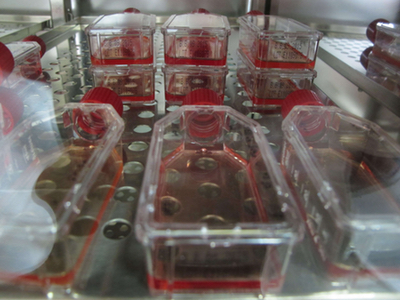ACIB and GE Healthcare establish cell line engineering collab
The Austrian Centre of Industrial Biotechnology (acib) and GE Healthcare are introducing a cell line engineering research collaboration to bring increased productivity to biomanufacturers
The goal of the three-year partnership is to explore and identify new tools and methods to modify and optimise the Chinese hamster ovary (CHO) cell line performance.
CHO cell lines
Cell lines are the most important single component in the production of biopharmaceuticals, as they set the boundaries for the product yield and quality resulting from a biomanufacturing run.
CHO cell lines, the most commonly used hosts for industrial production of therapeutic proteins, have not traditionally received much direct attention or optimisation in the industry, because the technical means have been limited, and the regulatory environment is demanding.
Currently, biopharmaceutical companies are mainly using time-consuming empirical, trial and error methods to find the most optimal production cell clone for their product starting from sub-optimal starter cell lines.
However, with the newly available opportunities introduced by gene editing and analytical tools, it has become possible to explore how cells behave and respond to different process conditions, and develop improved starter cell lines accordingly.
Morgan Norris, General Manager, Upstream and Cell Culture, GE Healthcare Life Sciences said:
“While the biopharma industry is growing quickly, lack of access to biologic drugs is commonplace in many countries partly due to the complex and time-consuming production methods. Cell line engineering could help us bring major productivity improvements for our customers, making it more feasible to bring biologic manufacturing to more regions.”
GE Healthcare and acib
The companies will seek to reduce the need for clone screening, recognise suitable tools for cell line engineering, and gain more knowledge about what cellular mechanisms determine cell line efficiency.
Nicole Borth of BOKU University, is Area Leader at acib and in charge of the project. She said:
“With the new analytical tools that genome sequence information, along with different ‘omics’ technologies (such as transcriptomics), provide, we begin to understand precisely how cellular performance is regulated and how it works in detail.”
“What we are aiming for in this collaboration is to develop the ability to manipulate cell behaviour in an efficient way, such that we can design, define and control these properties and adapt them to whatever is best suited for a given product.”
“We believe that this collaboration will increase our understanding of cellular behaviour, eventually creating more predictable and reliable manufacturing processes for biopharma producers,” said Norris.







